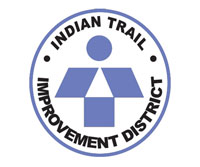The Indian Trail Improvement District Board of Supervisors has set Wednesday, May 1 to hold its first public hearing on the budget for fiscal year 2019-20.
“At this point, there are no proposed increases,” ITID President Betty Argue told the Town-Crier on Wednesday.
The board was able to add another culvert crew and add a district executive director, as well as create a road improvement fund, relying on carryover from this year for a proposed budget of $18,576,613.
“The budget has increased, but the assessments have not,” Argue said. ‘The reason for the budget increasing is because we’re creating those additional pots of money for future planning, like the road repaving of the existing R2 roads [and] the drainage improvements needed.”
The unused budget amounts from this year will cover increases, plus create contingencies to cover capital improvements in its five-year plan.
“We’ve proposed that there be an increasing amount appropriated each year to go into a pot to do the road repaving plan,” Argue said. “We will be at $2.8 million from this proposed budget. That’s how much money we would have set aside for the road repaving project. I don’t think it’s going to be enough, but we’re working toward it, so that when it needs to be done, we don’t have to have a huge tax increase to cover it. That’s why it looks like a budget increase, but it isn’t really because we’re still staying within the assessment dollars that we have.”
Argue noted that the district did have an assessment increase for the 2018-19 budget year in anticipation of capital projects, including paving and drainage improvements, culvert replacement and swale renovation, responding to residents’ complaints about bad conditions.
“It was for increased funds that we needed for infrastructure improvements like the culvert crew and equipment that we would need to do that,” Argue said. “We’re finding that it is far more affordable for us to go this path with [the] amount that we have to do, rather than contracting each individual one out.”
Argue said that the implementation of a second culvert crew will cut the total completion time about in half, from the year 2050 to 2030.
“It’s still 10 years away from being complete on that, but we’re going to keep assessing it and evaluating so we do better… or put more resources to it without having a huge fiscal impact,” she said.
Working with one culvert crew has worked out well enough that a second set of equipment has been purchased or budgeted.
Argue said that the board worked through salary scales for workers in a recent workshop to assure that the district was offering competitive rates for operations and maintenance positions it needs to fill.
“We’ve been able to recruit to fill our needs, so that has not been a problem,” Argue said. “It has taken a little bit of time to put it together, but we have a lot of things going on, so that’s to be expected. I think we still have a couple of open positions, but they’re not critical ones at the moment.”
May 1 will be the first public hearing on the budget, and the final hearing will be in June. “There is still time for the board to make some changes, but I believe when the board adopts it in June, we can go down, but we can’t go up,” Argue said, adding that the May 1 meeting will have a formal presentation of the draft budget and accept public comment.
Argue said the board might discuss some unresolved items about staff benefits, which include a 3 percent across-the-board raise, but will primarily listen to public comment.
“Right now, it’s proposed as across-the-board, but a merit program is supposed to be implemented by then,” Argue said. “That will be something else that will need board direction.”
Highlights of the proposed budget include:
• Zero increase in total assessments.
• An overall budget increase of $2.8 million (18 percent).
• Unspent maintenance assessment dollars from this year’s budget are being proposed to maintain assessments at this year’s rates.
• Twenty-five percent of annual budgeted expenditures are being maintained as a minimum reserve of $3.9 million.
• The inverted syphon savings account will be raised by $400,000 to $1.2 million.
• The asphalt repaving account will be increased by $750,000 to $2.8 million.
• The road rock budget will be increased by $300,000 for routine maintenance.
• Retrofits and overhauls for major dirt roads will be increased by $74,000.
• Materials for culvert replacements will be budgeted for $1.8 million.
• Several pumps and one engine will be overhauled at a cost of $125,000.
• Telemetry will be upgraded at a cost of $470,000.
• Aging equipment and vehicles will be replaced at a cost of $765,000.








